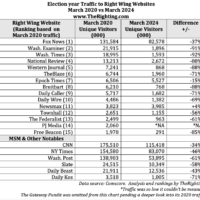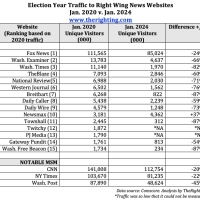
The Hungarian Conservative Is the European Journal Right Wing Americans Love
By Michael Lovito, March 2, 2023
During the Cold War, Americans on the left and right pointed to repressive communist regimes like Hungary’s as an example of the failures of socialism. But over thirty years after the fall of the Berlin Wall, the small central European nation has become something of a conservative Camelot, hosting a Conservative Political Action Conference (CPAC) event in 2022 and inviting prominent American conservatives like Tucker Carlson and Rod Dreher to immerse themselves in Hungarian society and extol the virtues of Viktor Orbán, its right wing prime minister. Despite a long history of being dominated by the likes of the Habsburgs, the Nazis, and the Soviets, Hungary now finds itself in an unlikely position of international influence, selling itself as a redoubt of cultural conservatism as the rest of the world races left.
That’s also the position taken by the Hungarian Conservative, an English-language bimonthly journal that seeks to be “the foremost voice of twenty-first century Hungarian conservatism.” For the Hungarian Conservative and its readers, Orbán and Hungary serve as a model of conservative governance, melding Trump-style populism with a reverence for traditional values. But critics see Orbán as a wannabe autocrat who’s done everything in his power to tamp down opposition, and his newfound popularity as a warning sign about the intentions of conservatives worldwide. The Hungarian Conservative aims to cut through this skepticism, and instead present Hungarian-style conservative as an answer to “the most pressing questions of our time.”
Government Funding
The Hungarian Conservative was founded in 2021 by the Batthyány Lajos Foundation, a grant-making foundation that receives funding from the Hungarian government. Its inaugural and current editor-in-chief is Tamás Magyarics, a career academic who served as the Hungarian ambassador to Ireland from 2011 to 2015 and as the head of the North American Department at Hungary’s Ministry of Foreign Affairs and Trade from 2015 to 2016. In addition to his government service, Magyarics also conducted research at multiple U.S. presidential libraries and currently teaches American students at the Institute for the International Education of Students (IES) in Vienna, making him a natural choice to lead a publication designed to raise Hungary’s profile with English language readers.
First and foremost an academic journal, The Hungarian Conservative publishes print issues on a bimonthly basis to a circulation of approximately 3,000 readers. (Its sister journal, the arts and culture focused Hungarian Review, is delivered to an audience of approximately 1,500). These print editions feature longer, more in depth pieces on history, philosophy, and politics, while the website publishes more immediate reactions to current events. According to Magyarics, in addition to its regular contributors, the Hungarian Conservative seeks out writers to compose pieces on commission and publishes an average of 100 different authors over the course of a year.
The Tenets of Hungarian Conservatism
Despite its title, the Hungarian Conservative doesn’t publish in Hungarian (it’s an exclusively English-language journal) and doesn’t limit its pool of contributors to Hungarians. Recently published authors include The American Conservative’s Rod Dreher (who’s currently a visiting fellow at the right-wing Danube Institute, another Batthyány Lajos Foundation venture) and conservative Italian Catholic priest Mario Alexis Portella; former Margaret Thatcher speechwriter John O’Sullivan is one of the journal’s editors-at-large. The journal doesn’t focus solely on Hungarian-centric issues either, publishing several articles covering primarily American concerns like the Black Lives Matter movement and the 2024 Republican presidential primary.
When asked to define “Hungarian conservatism,” the ideology that the Hungarian Conservative claims to espouse, Magyarics concedes that it isn’t an entirely coherent concept (jokingly paraphrasing Potter Stewart’s definition of pornography, he says “I recognize it when I see it”), but he described a few key tenets that have come to define both the movement and Orbán’s government since it took power in 2010.
First is the idea that Hungary and other “Western” nations’ cultures are “rooted in the Judeo, Roman, Greek, and Christian tradition and conscience” and should therefore derive their “ethical standards from these sources.” Second is the idea that Hungary’s “national interest” extends beyond the country’s border and requires the government to advocate for Hungarian-speaking communities in countries like Ukraine and Romania, and third is a version of “patriotism, not nationalism, not chauvinism” that unapologetically celebrates the accomplishments of Hungarians throughout history (Magyarics likes to point out that, for a relatively small country, Hungary has a rather large number of Nobel Prize laureates) and opposes the “federal aspirations of the European Union.”
Common Ground with the American Right
Perhaps the area where American conservatives and Hungarian conservatives share the most common ground is their support for what Magyarics calls “family policy.” In addition to adopting a tax structure that provides financial incentives for families that have more children, in 2021 the Orbán government passed a law banning depictions of LGBTQ characters in children’s television and school materials, a policy that Magyarics compared to Florida Governor Ron DeSantis’ “Don’t Say Gay” law and Republican presidential candidate Nikki Haley’s proposed restrictions on sex education.
“Frankly, I don’t think we should be ashamed of having all of these policies and ideas,” Magyarics said about Orbán’s social and cultural agenda, which has received condemnation from NGOs and other member states of the European Union. “We recognize that a lot of atrocities have been committed in the name of Christianity and so on. But that doesn’t mean we should throw the baby out with the bathwater.”
Rigged Elections and Tilted Media
Despite Orbán’s controversial policies and statements, his party, Fidesz, currently holds a supermajority in the National Assembly (Hungary’s unicameral legislature) and won Hungary’s 2022 parliamentary election with over 54% of the vote. While Magyarics believes that Orbán’s populist economic policies and Eurosceptic rhetoric are the main drivers of his popularity, he also concedes that the prime minister is aided by a weak opposition. United for Hungary, the coalition of political parties that opposes Fidesz, is lead in part by unpopular former Prime Minister Ferenc Gyurcsány and includes parties ranging from the center-left Hungarian Socialist Party to the far right Jobbik, which has made it difficult for them to craft a cohesive political identity outside of their shared disdain for Orbán.
But according to Kim Lane Scheppele, a professor at Princeton University who specializes in Hungarian politics, Orbán has been able to consolidate power by engaging in outright political suppression. Scheppele described the 2022 election as “functionally rigged” thanks in part to laws that allow a Fidesz-controlled media board to fine news organizations for “imbalanced news coverage” and scant legal protections for journalists’ sources. These regulations, combined with the fact that few international media outlets like CNN or BBC produce Hungarian language content, has created a media landscape where “professional or neutral news is very hard to find,” Scheppele told TheRighting via email.
“The media are now so tilted toward the government overall that the ability of elections to be free and fair – with the public having access to equal information on all candidates – is very much in doubt,” Scheppele said. “That’s not just me speaking – the international election monitors for the 2022 election said so too.”
Underdogs with Deaf Ears
For The Hungarian Conservative, international criticism of Orbán, especially from the United States, makes for good copy. The journal has run multiple articles critical of US Ambassador to Hungary David Pressman, an Orbán opponent who the journal describes as a “fierce advocate of LGBTQ rights,” and recently published a translated piece that characterized USAID head Samantha Power’s recent meetings with Hungarian journalists and human rights activists as “a telling-off of Hungarians.”
According to Magyarics, international media scrutiny and the efforts of the U.S. and EU to get Orbán to soften his approach will fall on deaf ears. If anything, he said, it plays into Hungarians’ traditional view of themselves as the underdog.
“Hungarians don’t really care what The New York Times or The Guardian is writing about [Orbán],” he said. “First of all, they don’t read them, so they don’t even know. And second, their idea is, well, the Hungarians have been fighting against stronger forces all our life. So this is just business as usual.”
Michael Lovito is a Brooklyn-based reporter and critic whose work has appeared in Salon, Brooklyn Magazine, Pavement Pieces, and The District. He also serves as editor-in-chief of the politics and pop culture website The Postrider. @MLovito
Interested in more news about right-wing media curated especially for mainstream audiences? Subscribe to our free daily newsletter.
Despite its title, the Hungarian Conservative is an exclusively English-language journal and doesn’t limit its pool of contributors to Hungarians. Recently published authors include The American Conservative’s Rod Dreher. Former Margaret Thatcher speechwriter John O’Sullivan is one of the journal’s editors-at-large
























